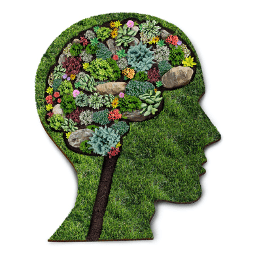
Gardening has been around for as long as humans have been growing plants for their personal needs. Through the years, gardens have served not only as places to grow plants but as spaces for people to relax, to focus, and to connect with nature and each other.
Gardening can improve many aspects of mental health, focus, and concentration and also enhance the positive well-being of an individual. Some of the ways in which gardening helps include:
1. Enhancement of mood: Gardening can make you feel more peaceful and content. It enhances a positive mood and also helps in directing your attention towards immediate tasks and details of gardening that can reduce negative thoughts and feelings.
2. Self-esteem development or boost: Self-esteem is how much you value and feel positively about yourself. When you see your work pay off with healthy plants, your sense of pride gets a boost. Many people find a sense of purpose and meaning in looking after plants and feel that plants are like children that they are rearing.
3. Improves attention and concentration: Gardening can change how well you pay attention to any activity. If you struggle with staying focused on any task, gardening can help you learn to concentrate on what’s right in front of you without getting distracted. The gardening process involves multi-tasking and improves co-ordination and attention to tasks and minute details.
4. Serves as a source of exercise: Weeding, digging and raking are good exercises. Regular exercise reduces anxiety, depression, and other mental issues, and can help prevent dementia. If you don’t like going to the gym, gardening can be an enjoyable task to still get these benefits as it includes a lot of movement and lifting of plants and pots.
5. Promotes social bonding: Gardening with others at a community garden or as a family takes teamwork to achieve shared goals. Being part of a larger group can benefit your mental health by increasing your social connections and your support systems. Appreciation from others on gardening also enhances social interactions.
Gardening reminds us of our connection to nature, and helps us focus on the bigger picture, which can alleviate symptoms of depression. Also, the physical aspect of gardening releases feel-good chemicals in the brain such as serotonin and dopamine. In short, working with soil makes us happier.
Flowers and ornamental plants increase levels of positive energy and help people feel secure and relaxed. Adding flowers to your home or work environment reduces your perceived stress levels and makes you feel more relaxed, secure and happy. Many flowers help filter out carbon dioxide pollution for oxygen (which helps keep us alive); they also eliminate chemical toxins (benzene, formaldehyde, trichloroethylene, etc.) and their effects found in our homes. Health professionals should therefore encourage their patients to make use of green spaces and to work in gardens, and should pressure local authorities to increase open spaces and the number of trees, thus also helping to counteract air pollution and climate change. Therapeutic gardens have been used in hospitals for many years, and were strongly supported by Florence Nightingale, the founder of modern nursing, as they improve the surroundings for patients, visitors and staff. Few complementary therapies have been convincingly shown to be effective, but gardening and nature, which are alternative therapies, offer a proven, cheap and nearly universally available means to improve a nation’s health.
So, get a plant and enhance your mental health today!
Picture Credit : Google



